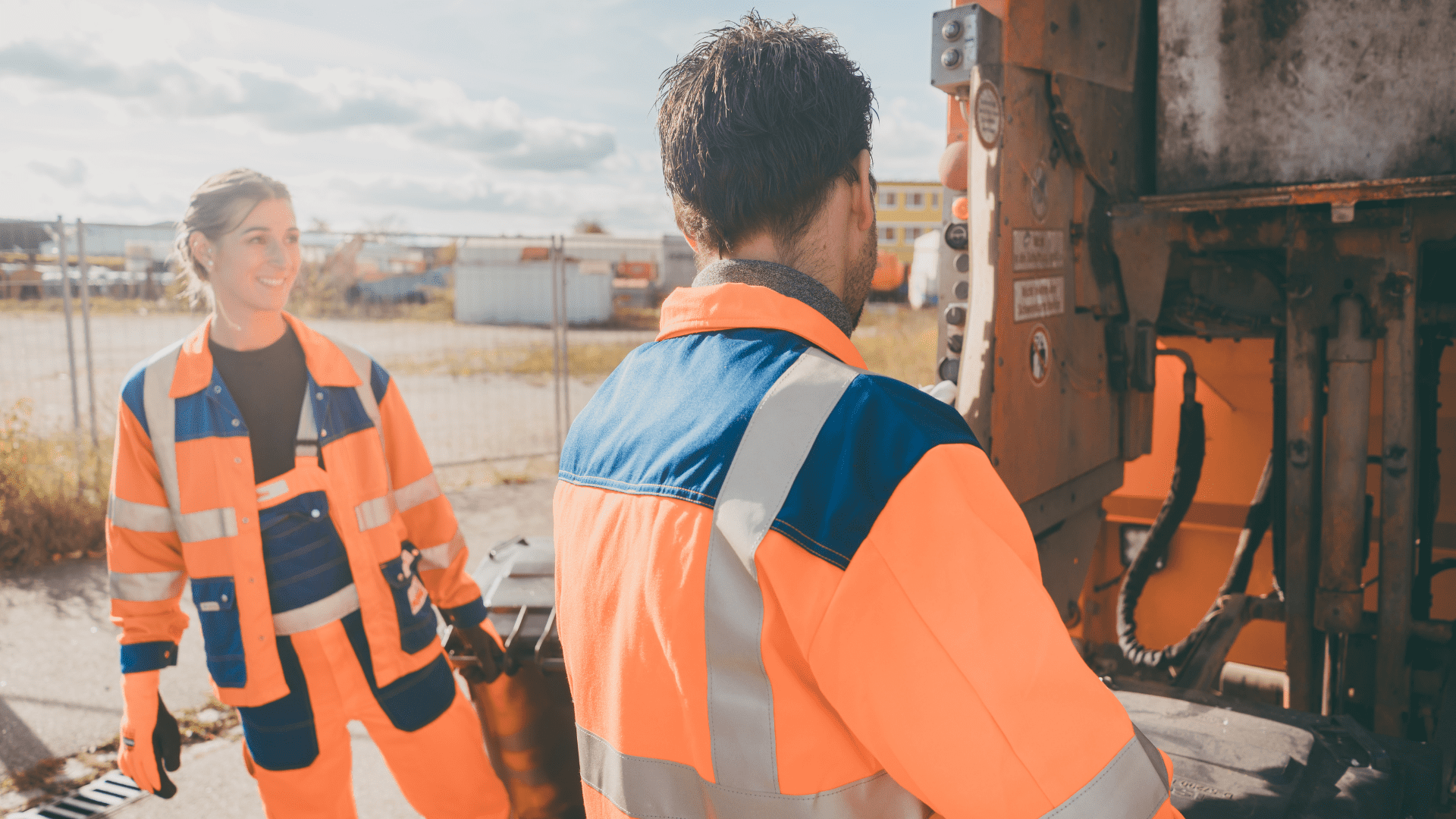Estimated reading time: 5 minutes
Keeping our cities clean is an essential and potentially hazardous job. Done incorrectly, it can have a harmful effect on the health of cleaners, as well as the communities they work in. The MUC training for health project works with urban cleaners to develop health and safety cultures and training to help make sure everyone is protected. The Prolepsis Institute tells us how they are supporting health and safety for street cleaners and their colleagues.
Written by Aikaterini Kandyliari and Pania Karnaki from the Prolepsis Institute, Athens
Identifying the need for action on health and safety
European citizens, nowadays, produce billions of tons of waste each year in Europe. The way this rubbish is handled and disposed of exposes the environment and public health to risks. At the same time, waste collection and management helps to keep our cities clean and protects us from the spread of diseases. Urban cleaners are front line employees1 who play a crucial role in keeping cities clean – especially important during the COVID-19 pandemic.
Municipal waste is complicated because it represents the greatest and most diverse set of hazards of all waste management. Waste collection and urban cleaning expose workers to diverse and dangerous conditions2. Because work pressure is high, accidents are more likely to occur, which means that urban cleaners are prone to injuries and occupational diseases. International research has defined Municipal Urban Cleaners’ needs well. However, training for these employees is limited and not repetitive. Lack of awareness and adequate training opportunities among workers are linked to high numbers of injuries and occupational accidents3.
The ‘MUC training for health’ project
The MUC training for health project is improving the health and well-being of urban cleaners by boosting risk awareness and knowledge about occupational health and safety. Through co-creation activities and participatory research, the project is looking at the career paths and educational needs of urban cleaners. It aims to:
- Develop an interactive training curriculum reflecting the specific needs of urban cleaners and their supervisors.
- Increase knowledge, skills, and competencies to identify and control occupational hazards, inspire involvement, and build ownership in safety culture.
- Establish communication channels for hazard reporting.
- Shape vocational education and training and other educational systems to adapt to changes to curricula for health and safety professionals.
The MUC training for health project is supporting the health and safety of municipal urban cleaners, in line with the aims of the European Agency for Safety and Health at Work (EU-OSHA).
The MUC training for health project will run for three years, from the start of 2020 to the end of 2023. The ERASMUS+ Program of the European Union funds the project. MUC training for health is aligned with the aims of the European Agency for Safety and Health at Work (EU-OSHA).
The Athens Development and Destination Management Agency (Greece), coordinates the project, and it works together with the Prolepsis Institute (Greece), CSI Center for Social Innovation (Cyprus), IKM Pro (Poland), Varna Economic Development Agency (Bulgaria) and Municipality of Andrano (Italy)
The clear need for training for health and safety for urban cleaners
During the first months of the project, the consortium focused on developing a map of training opportunities, challenges, and needs in Europe relating to occupational health and safety (OSH) for urban cleaners. This mapping involved extensive desktop research as well as participatory research. We are now organising focus groups in the project countries, which involve MUC workers, MUC supervisors, senior administrative staff, members of OSH committees, and occupational practitioners.
The first results show that there is a lack of adequate training provision for safety practices and principles. MUC workers as well as their supervisors seem to be concerned about the problematic use of protective equipment as well as the lack of knowledge on the appropriate measures for occupational health and safety. One worker said “Health and safety is a topic that concerns me every single day during my work” and another “There should be regular employee training”. The need for educational and training opportunities for urban cleaners is clear.
Innovative training curriculum for urban cleaners’ health and safety
To meet the educational needs of MUC workers, we will develop interactive digital training with an e-learning platform. The aim is to increase participants’ competence on health and safety issues – especially during public health emergencies such as the COVID-19 pandemic. The ultimate goal of the project is:
- To develop Municipal Urban Cleaners’ knowledge and skills.
- Motivate employees’ involvement.
- Build ownership in safety culture.
The exact content of the curriculum will depend on the results of the research and feedback from participants in the projects, but we anticipate including modules on:
- Infectious diseases (including COVID-19) and chemical hazards.
- Proper use of personal protective equipment (PPE).
- Emergencies, first aid and workplace injury management procedures.
- Collaboration with occupational practitioners and compliance with the intended vaccination and screening schedules.
- Mental health empowerment.
- Co-creational activities will ensure that the developed training fully meets the needs and educational backgrounds of the specific audience, maximising the expected benefits.
The impact
MUC training for health should provide specialised training for urban cleaners, and as a result help them to perform their work in a way that is safer for them, their co-workers, and the general public. We believe will have multiple benefits for the health and wellbeing of both urban cleaners and the wider community.
To stay updated with the latest news of the project, visit muc-trainingforhealth.eu
References
- van Kampen, V., Hoffmeyer, F., Seifert, C., Brüning, T., and Bünger, J. (2020). Occupational health hazards of street cleaners – a literature review considering prevention practices at the workplace. International Journal of Occupational Medicine and Environmental Health, 33(6), pp.701-732. https://doi.org/10.13075/ijomeh.1896.01576
- OSHA (Occupational Safety and Health Administration) (2021). Protecting workers: Guidance on mitigating and preventing the spread of COVID-19 in the workplace. Available at: https://www.osha.gov/coronavirus/safework
- EU-OSHA (European Agency for Safety and Health at Work) (2014). Priorities for occupational safety and health research in Europe: 2013-2020. Available at: https://osha.europa.eu/en/publications/reports/priorities-for-occupational-safety-and-health-research-in-europe-2013-2020



